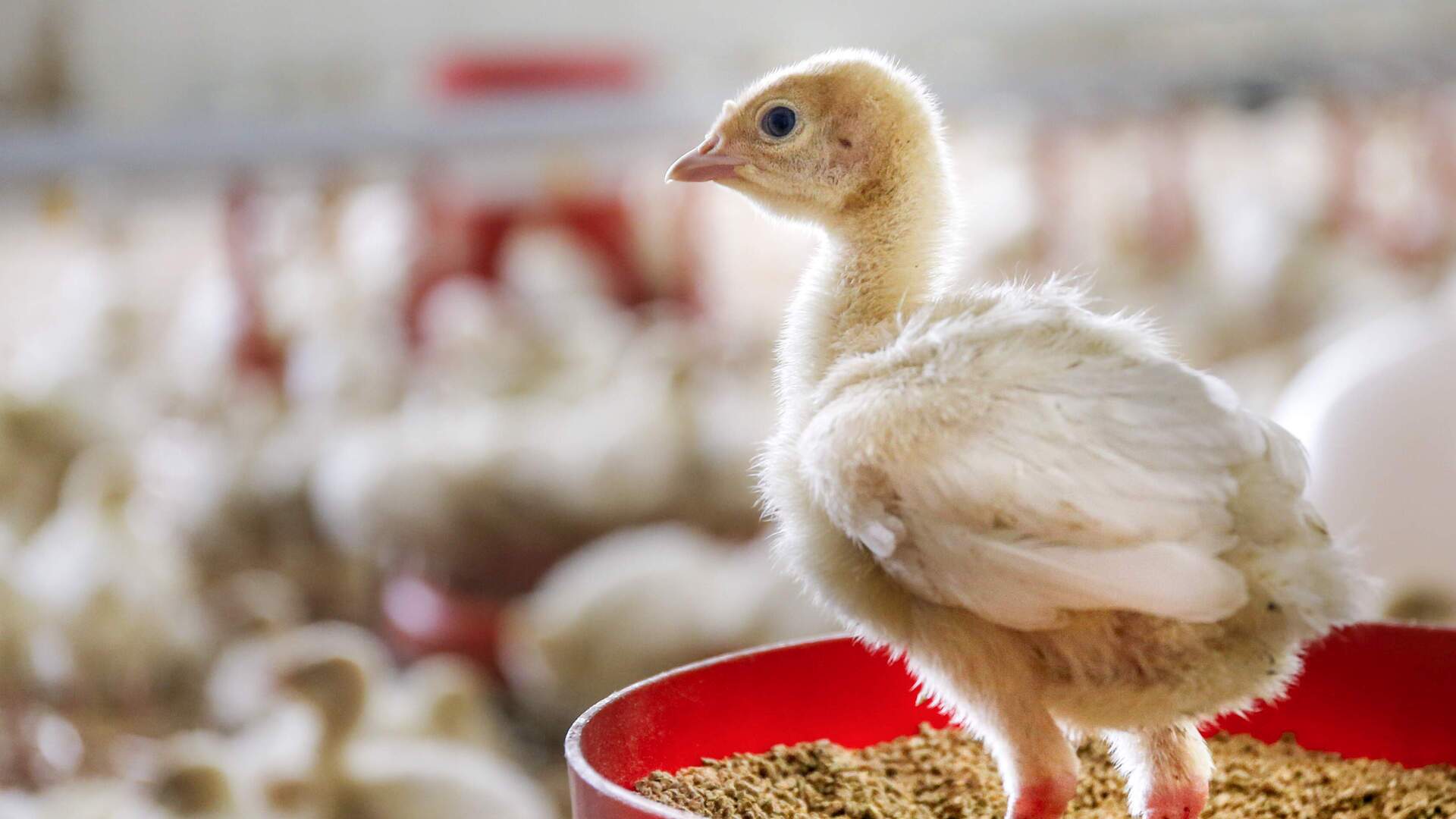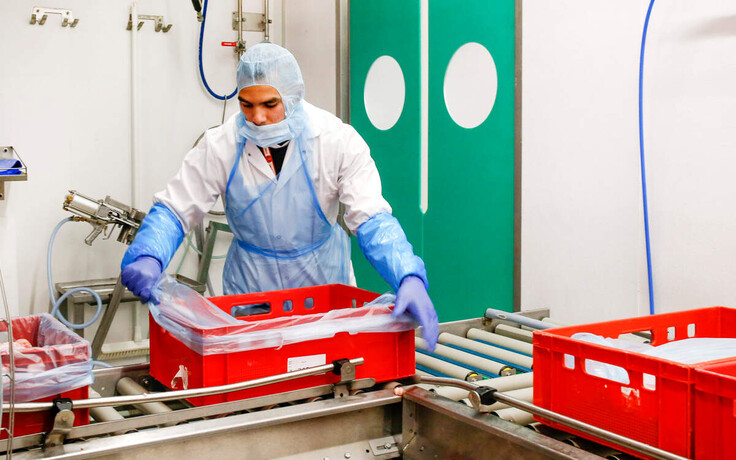Süddeutsche Truthahn AG (Sütag) already has its most important unique selling point in its name. As the only major turkey slaughterhouse between northern Germany and Italy, the company scores points for its regionality. "We are the only ones who can sell their products under the 'geprüfte Qualität Bayern' or 'Regionalfenster Baden-Württemberg' designations of origin," explains Georg Kirchmaier, who is responsible for quality management at Sütag. In Germany, this is a relevant sales argument that Sütag alone can claim for itself.
Regionality is the trump card

Sütag was founded in 2001 by regional turkey fatteners in Ampfing. With around 450 employees, Sütag is the number three German turkey slaughterhouse after Heidemark and Wiesenhof and is one of the largest employers in the region. Regional ties are therefore not just a marketing ploy, but firmly anchored in the company's DNA.

The organic trend
In addition to regionality, the Bavarian company is also increasingly focusing on organic products. Almost 3000 tons of organic poultry are slaughtered in Ampfing every year. Similar to its parent company Hubers Landhendl for chicken in Austria, Sütag is the market leader in the production of organic turkey meat in Germany. The development is far from complete, on the contrary. The company wants to continue to grow in the organic segment in the future.
The trend towards greater animal welfare and sustainability in meat production has also arrived in Germany. If Georg Kirchmaier has his way, this should continue or even increase in the coming years. There are currently no binding guidelines on turkey husbandry in Germany. For this reason, the industry relies on QS certification for the production of conventional turkey meat. There is also a whole range of other labels. Sütag is number one in the German market for the production of organic turkey meat.
However, the highly price-sensitive retail market in Germany poses a challenge. After all, higher quality and more sustainably manufactured products do not come for free. For Georg Kirchmaier, however, consumers also have a duty in this respect: "Only if consumers are prepared to pay a higher price for the added value will the proportion of animal-friendly and organically produced poultry products continue to increase."
Certified quality
Sütag also relies on certified quality for conventional meat. All suppliers bear the QS certification mark. QS stands for certified quality assurance for food. The label sets extensive requirements for animal husbandry, feeding, transportation and slaughtering. The most important requirements for fatteners include animal-friendly husbandry, regular visits to the vet, hygiene checks and the responsible use of medicines. The animals also only receive QS-certified feed and the animals are only transported by QS-certified transporters
The slaughter process and the processing of the turkeys are also monitored by the QS seal inspectors. The QS certification mark therefore stands for independently audited quality assurance throughout the entire production cycle - from the livestock farmer to the slaughterhouse to the store counter.

Fit for the future
Stagnation is regression. True to this motto, Sütag has invested in the expansion of its production facilities at the Ampfing site. The new packaging center was put into operation in summer 2017. This gives the packaging department significantly more space than before. The modern infrastructure with separate areas improves hygiene standards and leads to a more effective packaging process.
The new minced meat line will also be inaugurated this fall. With the new line, Sütag is meeting customer demand for fresh minced poultry meat. Burger patties can also be produced on the new line. "This means we can now also benefit from the burger trend in Germany," says Georg Kirchmaier happily. And the new minced meat line also offers an advantage when it comes to a widespread problem in poultry meat production: the utilization of by-products such as thigh meat is easier with the new system.QS (industry standard), organic and BTS
There are currently no binding guidelines on turkey husbandry in Germany. For this reason, the industry relies on certification in accordance with the QS seal of approval for the production of conventional turkey meat. There is also a whole range of other labels. Sütag is the number one in the German market for the production of organic turkey meat.
Population density: 52kg/m2 for hens and 58 kg/m2 for cockerels
Feeding: QS-certified feed
Housing: Floor rearing on litter
Transport times: max. 12 hours
Population density: 36.5 kg/m2
Feeding: QS-certified feed
Stables: Stable with natural daylight, raised seating and access to a conservatory (outdoor climate area)
Transport times: max. 6 hours travel time
Population density: 21 kg/m2
Feeding: certified organic feed
Pens: max. 2500 animals per herd, outdoor run with at least 10 m2 of space per animal
Transport times: not standardized, depending on the association between 4 and 8 hours travel time